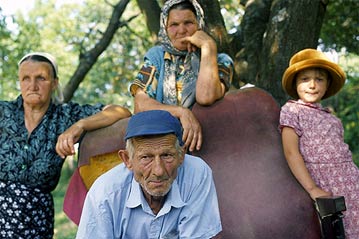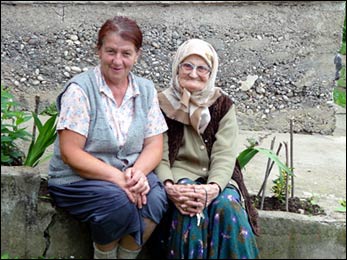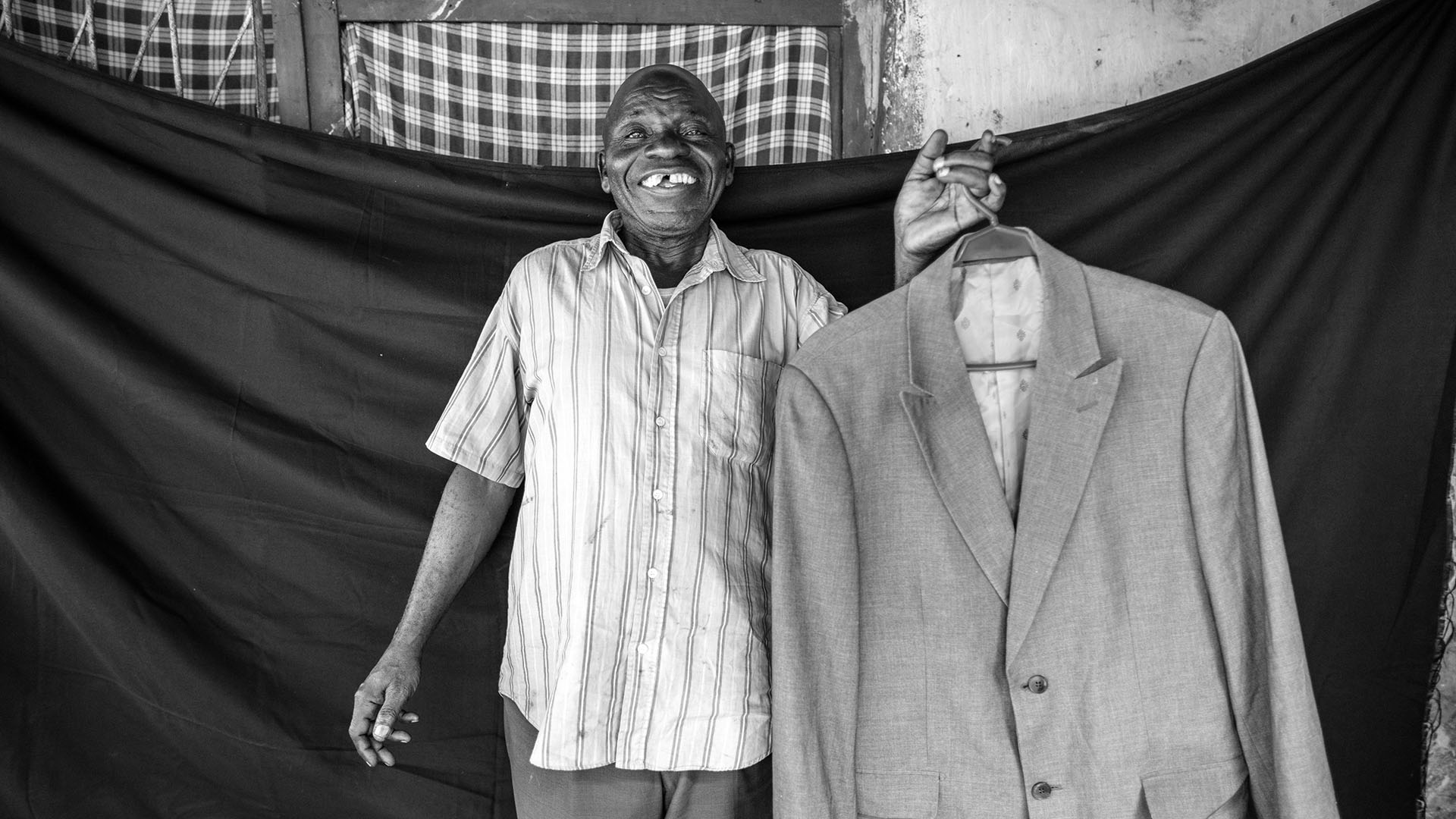This is the best place in the world, Bosnian returnee tells UN official
This is the best place in the world, Bosnian returnee tells UN official

MRKOVICI, Bosnia and Herzegovina, June 17 (UNHCR) - The small village of Mrkovici sits in the green rolling hills north of the Bosnian capital, Sarajevo. In 1996 nearly all of the village's 200-odd inhabitants left and became internally displaced. Many of the village houses were damaged or looted. Momcilo Radjenovic, a ruddy bearded man who used to work as a driver before the war, fled to Visegrad in the Republika Srpska with his wife, a daughter and two sons. They found an abandoned house and stayed there until, last year, the house owner returned and evicted them.
Now, with an expanded family which includes two daughters-in-law and three grandchildren, Radjenovic is back in Mrkovici. "For us this is the best place in the whole world," he told Walter Kälin, the UN Secretary-General's Representative on the Human Rights of Internally Displaced Persons, who ended a week-long visit to Bosnia and Herzegovina last Wednesday.
Radjenovic added, "I own the ground floor of this house and my brother Jadranko, who returned with his wife and two children two months ago, owns the upper part. My part of the house would be large enough for me and my family, but at present only two rooms are fit for human habitation. We received help with building materials but during this long winter, the heavy snow damaged the roof and we have had to fix it with the little money we had."
In all, some 25 families out of the 60 that lived there before the war have returned to Mrkovici.
"We have no security problems," says Radjenovic. "There are landmines in some neighbouring villages but all known mine fields are clearly marked. Our main problem here is the lack of money. All the adults in the family are unemployed. We own some land but we don't have funds to purchase machines or seeds. We don't have money to buy cows or sheep. We grow vegetables for our own consumption. My sons occasionally find some part-time jobs as construction workers. I guess we share the lot of most people in Bosnia and Herzegovina."
Last year some 20,000 former refugees and displaced persons returned to their pre-war homes in Bosnia and Herzegovina, bringing the total number of returnees since 1996 to over one million. Of these, over 450,000 have returned to areas where they constitute the minority of the population.
UNHCR monitored and directly supported the implementation of property laws together with other international agencies including the Office of the High Representative in Bosnia and Herzegovina and the Organisation for Security and Cooperation in Europe (OSCE), thus defusing potentially contentious property issues. Over 200,000 property claims (95 percent of all property claims) have been settled since 1999.
The UN refugee agency provided returnees with free legal aid and information about their rights through the Vasa Prava ("Your rights") network consisting of some 80 staff members in 15 offices. Sixty mobile teams made sure that people in the most remote areas of the country could also have access to these services.
The integration of returnees, however, remains a difficult and challenging task. "Despite very impressive results in solving almost all property disputes, returning large numbers of displaced persons to their reconstructed homes and creating a safe environment for most returnees, the situation of displaced persons and minority returnees in Bosnia and Herzegovina remains fragile," concluded Kälin at the end of his mission.
He cited discrimination in employment and access to education, health and social security, as well as impunity for crimes committed during or shortly after the war, as some of the outstanding problems. Moreover, the provocative use of national and religious symbols by some local authorities results in minority returnees not feeling welcomed.
"These problems are also an important reason why the rate of returns is slowing down and preventing persons still displaced from going back to their homes," Kälin added.
There are still over 186,000 internally displaced persons in Bosnia and Herzegovina and more than 22,000 refugees from Croatia, Serbia and Montenegro.

"Mr. Kälin's mission was very timely," said Udo Janz, UNHCR Representative in Sarajevo. "As we approach the 10th anniversary of the Dayton Peace Agreement later this year, the assessment by an independent expert on the human rights of the internally displaced, of what has been achieved in this country and what remains to be done, will prove invaluable."
There are difficulties but also a great deal of progress to report. In Osamsko, in the municipality of Bratunac, Kälin met two recent returnees who offered him strawberries from their garden. They told him that they got along perfectly well with their neighbours and enjoyed working around their house and on their land. "We are so happy to be back home," they beamed.
By William Spindler








